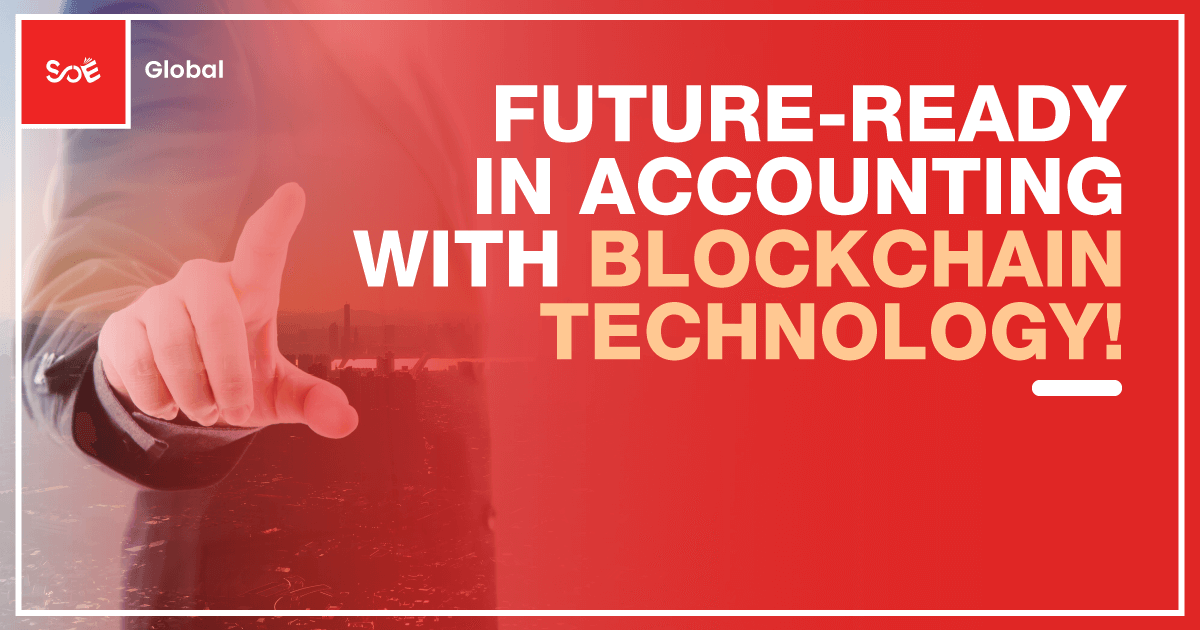Future-Ready in Accounting with Blockchain Technology!
Every few years or so, we encounter an innovation in the form of a concept, product, or a simple idea that completely transforms the face of modern trade and commerce! Blockchain is one such innovation.
Blockchain technology is on a rapid rise and will have profound implications in the field of accounting in the years to come. But what exactly is “blockchain technology”?
What is Blockchain Technology?
Just as the name suggests, a blockchain can be visualized as a chain of blocks that hold information. It was first conceptualized in 1991 as a means of time-stamping digital documents, like ledgers, so that they cannot be manipulated.
In simpler words, blockchain technology is like an electronic ledger that is stored among millions of people.
The information in a blockchain can never be changed or deleted. It can only be added and stored in chronological order. Furthermore, all of this information can be passed from one person to another without the involvement of middlemen, and is encrypted using cryptography.
This decentralization of power and information makes for a security system of the highest standards, at almost zero cost!
The popularity of blockchain technology skyrocketed only 2 decades later in 2009 when a person by the alias “Satoshi Nakamoto” introduced the cryptocurrency “Bitcoin.” Bitcoin leveraged the security and reliability of blockchain technology.
To sum it all up:
- Information cannot be changed or deleted
- Information can only be added
- Information is accessible to all
- Data is completely transparent
- Data is stored in chronological order
- Data is end-to-end encrypted
Why Does Blockchain Matter for Accountants?
Finances are among the highest priority of any profitable business. As data breaches, scams and cyber thefts continue to rise in the digital world, privacy and protection of finances and financial records is vital!
In a centralized system like a bank, hackers and cybercriminals could access any data by simply attacking the centre piece, i.e., the bank. In a decentralized system, like a blockchain, cybercriminals have to attack millions of computers, each of which forms a node in a vast web, to gain access to the data they seek.
Such immaculate security makes blockchain the go-to solution for tech-savvy accountants who stay on top of emerging trends and technologies.
The discretion and encryption of blockchain technology empower accountants to:
- Securely process company payments
- Record financial deals and transactions
- Execute financial tasks
Simplifying the Job of Accountants
The applications of blockchain in the accounting realm are far and wide.
- Bookkeeping
Since blockchain technology stores information securely, decentralized and chronologically, bookkeeping may soon be a thing of the past in accounting.
- Verifying Transactions
Blockchain is a peer-to-peer technology where other members or nodes in the blockchain contribute to verifying information using their computers and the blockchain code. Therefore, accountants do not have to spend extra time and effort carrying out this task.
- Auditing
Since blockchain technology executes tasks in real-time while updating information faster than humans, the menial tasks of an auditor could also be eliminated. Thus, auditors would have more time to devote to higher-level thinking, do more research and formulate strategies.
Conclusion
Blockchain technology has gone from something unheard just under a decade ago, to something completely revolutionary in accounting.If you also want to be a part of this revolution by getting into the accounting industry, check out these courses today!
